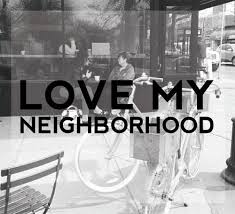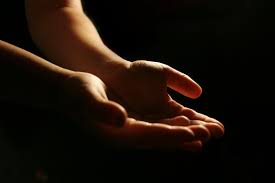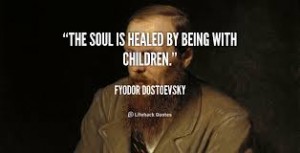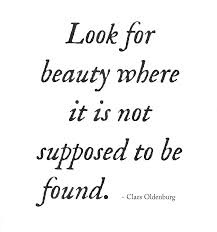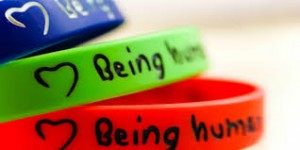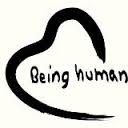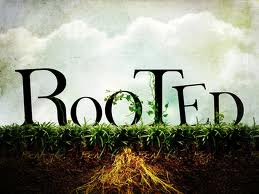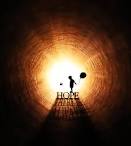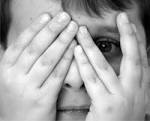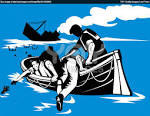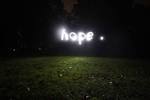How do we end up in a desert season or experience in our lives? Whose to blame for being stuck in a desert? What desert experiences can be avoided or shortened? How long will these desert seasons last? While there are human factors and choices that contribute to our experiencing or prolonging a desert experience, there is a fair amount of mystery involved. As the common expression goes: “S*#t happens.” What is our part in landing us in a desert? What is just part of living in a broken, messed up world where bad things happen for no apparent reason or Satan trying to harm us? What is God’s part in the journey into the desert. Human nature is to try and figure out who is to blame or scapegoat. What is important is for us to discern what is ours to own, and what do we chalk up to the necessary, normative, and deeply formative experience of our being shaped in character and for our calling in the desert.
From my own experience, and what I have learned from stories of other fellow sojourners is that there are 3 types or causes of desert experiences.
1. Self Induced Deserts. The first is a desert experience that is self-induced, or prolonged by our own sin and foolish choices. After the nation of Israel was freed from the bondage and slavery of Egypt, they had to go through a desert to get to their promised land. It was a necessary part of the terrain they had to pass through. The journey at most would have taken two and half weeks, or approximately 22 days. Instead, the nation of Israel had to wander around and go in circles for 40 years (40 is the number for wilderness in the Bible) in the desert because of their unbelief in God to get them through, and grumbling. (Numbers 14:26-35; Deut. 2:1)
If we are going in circles around the same mountain seeing the same terrain and vegetation, we are stuck in the desert and need to ask the question: Why?
The people of Israel had a choice after the spies came back with a report from the promised land. Would they listen to the 2 spies Joshua and Caleb who gave a faith filled report, and trust God to be their Protector, Provider, and Power source to get them through the desert and into the promised land?
When we are at the end of our rope and fear grips us who and what do we turn to for medication or to flee the pain?
The Israelites chose to listen to the 10 naysayer spies who filled the nation with fear by focusing their report on all the insurmountable obstacles, and challenges in taking their promised land. The people wanted to go back to the slavery of Egypt instead of trusting God to provide for, and protect them as they journeyed through the desert and into their promised land. The result of giving into their fear and unbelief was that those 20 and older would not get to enter into the promised land, but stay stuck for 40 years wandering in the wilderness, and in the end die there!
How many times do we forfeit or delay our destiny by our choices rooted in fear and unbelief?
Gripped by fear many of us stay stuck in the desert, or go back to the slavery and pseudo-security of the Egypt (reverting to false comforts and coping mechanisms to assuage our fears, returning to the shackles of systems/institutions that control us, and holding onto an illusion of being in control to protect ourselves) we know rather than taking the leap of faith into the unknown and embarking on a wild adventure of trusting God to get us through the desert into our promised land. We would rather be enslaved than be free men and women!
Real freedom is letting go of everything that owns us so that we can fully live!
Another example of a self-induced desert is found in the story of Moses. The life of Moses is a classic case study in how God prepares a person for leadership in His Kingdom. God is more concerned about the character of a leader than He is about pedigree or position.
Moses spent 40 years in the desert of Midian, because he tried to fulfill God’s destiny on his life to rescue the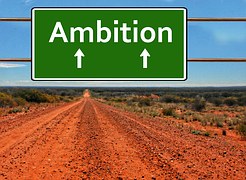 Israelites from slavery through his own methods, and through his impatience with timing. He killed an Egyptian who was beating a Hebrew, and as a result had to flee for his life. Moses wasn’t ready in character to steward power and authority from a posture of humility and patience! In the desert, He got busted and purged from his selfish ambition, arrogance, anger, and over inflated view of his importance by serving his father-in-law Jethro in tending his sheep! Forced Downward Mobility!
Israelites from slavery through his own methods, and through his impatience with timing. He killed an Egyptian who was beating a Hebrew, and as a result had to flee for his life. Moses wasn’t ready in character to steward power and authority from a posture of humility and patience! In the desert, He got busted and purged from his selfish ambition, arrogance, anger, and over inflated view of his importance by serving his father-in-law Jethro in tending his sheep! Forced Downward Mobility!
To steward power and authority in a safe way a leader must be broken and busted in the desert, so that he or she does not hurt themselves or the people they are called to serve!
The training camp for leading in God’s Kingdom requires one to go down before they go up. When we are weak than we are strong (2 Cor. 12:7-10)!
The greater the responsibility in leadership the deeper and longer the desert experience in the life of a leader to prepare them to steward power and authority in a safe way!
2. God Initiated Deserts. The second kind of desert has nothing to do with our choices, but is initiated by God. It says in Luke 4:1 that Jesus full of the Holy Spirit was led by the Spirit into the desert. Jesus had not sinned or made any foolish decisions to land himself in the desert. He was led there by God. Satan takes advantage of this time of weakness and vulnerability in Jesus life to tempt Him in all the constellation of temptations surrounding TRUST. Will we be seduced by Power to be our own God and build our own Kingdom? Who will we trust and give credit to for our Provision in good times and bad times? Who will we trust for Protection in our time of need. This time in the desert was part of Jesus’ training as a Son for His calling, and so he could relate to us when we go through desert experiences.(Hebrews 2:18, 5:8)
He was tested in all the classic trust issues: Who and What do we put our trust in or turn to for our source of Provision, Protection, and Power in seasons of Blessing and Brokenness?
Another case study is the life of Job. God seems to give Satan permission with limitations to sift and test Job. Satan takes from Job his wealth, his family, and even his health. The one line that keeps popping up after each test is Job did not sin in charging God with wrongdoing. His friends tried to find the cause for Job’s afflictions. It must be some sin in your life or something you have done or others have done to make God angry. It’s God’s fault! Job never goes there. In the end, Job chooses to not become bitter and turn his back on God. After this extremely painful time in his life, God gives back to Job twice as much as he had before.
One’s true character is revealed in times of testing, trial, and temptation!
There is a lot of mystery in the story of Job. It raises a lot of questions about the nature of God and who causes what. In the end, Job is not privy to the source of his afflictions. His declaration in Job 13:15 sums up the response of one who though he is stripped of all and completely broken will not turn his back on God: “Though he slay me, yet will I hope in Him…!”
Sometimes things will happen in our life where there is no rhyme or reason. Instead of trying to point the finger or look for who is to blame, we are called to simply let go and throw ourselves on God to get us through when all that we hold near and dear seems to be taken from us.
Pain insists upon being attended to. God whispers to us in our pleasures, speaks in our consciences, but shouts in our pains. It is his megaphone to a rouse a deaf world. C.S. Lewis
3. Mixed and Messy Deserts. The third kind of desert experience is what most of us go through. Most deserts are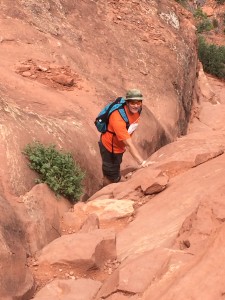 a combination of some of our own dumb choices, inexplicable and painful things happening out of the blue, our adversary coming like a snake or scorpion trying harm us, and God walking with us into a desert. By owning our responsibility for our bad choices or sin, we can to some degree determine the length of our time in the desert. In saying that, my personal experience is that there is a fair bit of mystery when it comes to desert experiences, especially when it comes to the length of time spent in a desert. Sometimes the start and finish is a set of definable moments that are affected by our decisions mixed with God’s sovereign intervention, and sometimes there is no rhyme or reason. All I know is that who we are becoming is far more important to God than what we do. He is not in a rush!
a combination of some of our own dumb choices, inexplicable and painful things happening out of the blue, our adversary coming like a snake or scorpion trying harm us, and God walking with us into a desert. By owning our responsibility for our bad choices or sin, we can to some degree determine the length of our time in the desert. In saying that, my personal experience is that there is a fair bit of mystery when it comes to desert experiences, especially when it comes to the length of time spent in a desert. Sometimes the start and finish is a set of definable moments that are affected by our decisions mixed with God’s sovereign intervention, and sometimes there is no rhyme or reason. All I know is that who we are becoming is far more important to God than what we do. He is not in a rush!
And now, here’s what I’m going to do. I’m going to start all over again. I’m taking her back out into the wilderness where we had our first date, and I’ll court her. I’ll give her bouquet of roses, I’ll turn Heartbreak Valley into Acres of Hope. She’ll respond like she did as a young girl, those days when she was fresh out of Egypt. And then I will marry you for good -forever! I’ll marry you true and proper, in love and tenderness. Yes, I’ll marry you and neither leave you or let you go. You’ll know me God for who I really am! (Hosea 2:14,19)
 When God leads us into a desert it is not because He is mean or cruel. He is a loving, passionate Husband and Father who will woo His bride and wean His bride from abusive lovers we keep going back to. He is a good Dad who is intentional in growing His kids up to be mature in the character and gifts He has given us. The Kingdom Way is descent before ascent. The Desert is all about deepening our trust and dependency in God through letting go. Trust is all about letting go so that we may be free to fully live as friends of God!
When God leads us into a desert it is not because He is mean or cruel. He is a loving, passionate Husband and Father who will woo His bride and wean His bride from abusive lovers we keep going back to. He is a good Dad who is intentional in growing His kids up to be mature in the character and gifts He has given us. The Kingdom Way is descent before ascent. The Desert is all about deepening our trust and dependency in God through letting go. Trust is all about letting go so that we may be free to fully live as friends of God!
Why the desert experience is summed up in Deuteronomy Chapter 8. Read and soak in it. The desert is to humble us and to expose or surface what is really in our hearts. Who and what do we put our trust in? When we are at the end of our resources and limits we have a chance to see God provide, protect, and show His power in the midst of our weakness. This prepares us for those seasons of our lives where there is tremendous blessing and fruit. Our memory of the desert reminds us where we have come from, and that it all comes from God and God alone!
In the next set of blogs, I want to explore in more detail the learnings and lessons of the desert from my experience summed up in this overarching thread that weaves through the desert tapestry:
The desert experience is about letting go so that we may love more deeply and live more freely!”

